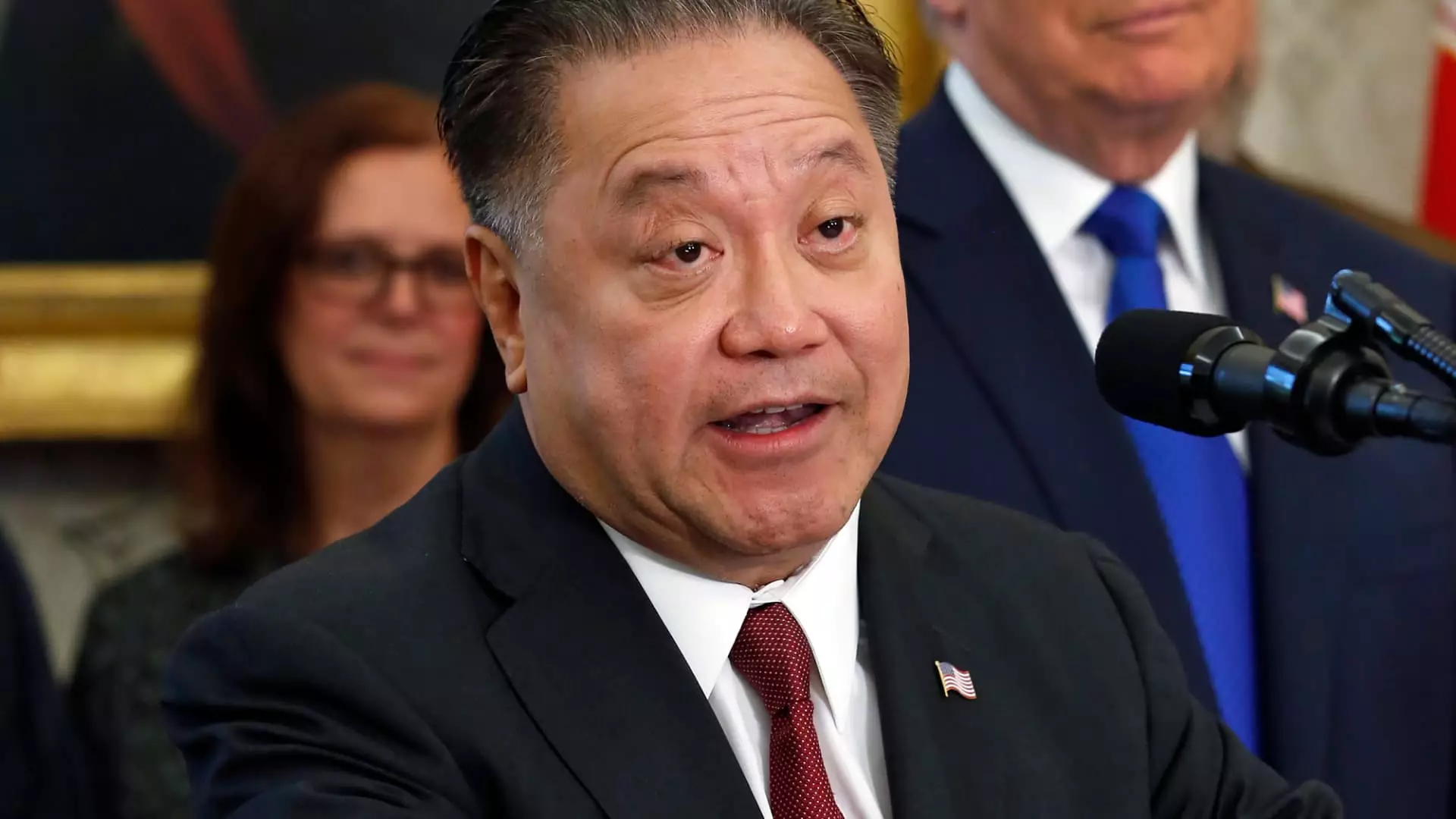In recent months, Broadcom has transformed from a reliable chipmaker to a fierce contender in the rapidly evolving artificial intelligence arena. Its recent financial disclosures reveal a strategic pivot that could reshape the industry’s landscape. What caught the market’s attention wasn’t just the company’s resilient earnings but the audacious announcement of securing a colossal $10 billion order for custom AI chips—an order that hints at a seismic shift in the AI hardware supply chain. This move signals many things: confidence in AI’s explosive growth, a willingness to invest heavily upfront, and a bold claiming of market share in a space traditionally dominated by Nvidia.
Most compellingly, analysts speculate that OpenAI—an innovator at the heart of the AI revolution—may be the elusive customer behind this gargantuan order. The implications are profound. If true, OpenAI’s collaboration with Broadcom positions the startup at the forefront of AI hardware innovation, competing directly against tech giants like Google, Meta, and TikTok, which have historically been Broadcom’s primary clients. This relationship could accelerate AI development cycles, foster increased hardware specialization, and catalyze a new era where AI companies aren’t merely software entities but integrated hardware developers.
Strategic Positioning in a Competitive Arena
Broadcom’s recent success highlights a critical understanding: the future of AI isn’t just about algorithms; it hinges on the physical infrastructure—powerful, customized processors that can handle massive data workloads with efficiency and speed. By securing a $10 billion order, Broadcom effectively positions itself as a vital backbone in this AI revolution. The company’s foresight in commissioning specialized XPUs (accelerator chips for AI workloads) demonstrates its awareness that off-the-shelf solutions won’t suffice in the race for AI supremacy.
Moreover, the company’s focus on high-value enterprise relationships exemplifies a shift from traditional hardware manufacturing toward an integrated ecosystem that supports AI giants from chip design to data center deployment. The strategic alliances with some of the world’s largest web-scale companies—including Google, Meta, and ByteDance—differ from many competitors whose customer confidentiality limits transparency. Broadcom is subtly leveraging these engagements to build a reputation as a dependable, innovative supplier capable of delivering the bespoke hardware AI startups hunger for.
Market Impact and the Broader Industry Ramifications
What truly makes Broadcom’s development noteworthy is the broader industry implication. The company’s stock surge—up approximately 130% over the last year—mirrors investor anticipation that the AI hardware supply chain is about to undergo a revolution. This isn’t mere speculation; it’s rooted in tangible orders that could redefine revenue forecasts. Analysts now project AI revenue contributions alone to climb to $35 billion by 2026, representing nearly half of Broadcom’s total revenue forecast.
The $10 billion order is not just a financial milestone; it’s a declaration of intent. Broadcom is signaling that it aims to be a dominant force in AI infrastructure, challenging Nvidia’s entrenched position. While Nvidia specializes in GPU technology for AI; Broadcom is staking its claim with custom XPUs designed explicitly for large-scale, web-centric, and enterprise AI deployments.
Equally significant is the company’s diversified approach: combining its hardware innovations with a burgeoning software division anchored by the VMware acquisition. This combination fortifies Broadcom’s ecosystem, making it less vulnerable to cyclical downturns in any single market segment and more capable of capturing new growth streams engendered by AI proliferation.
The Unfolding Revolution: AI Hardware as a Strategic Asset
The move towards bespoke hardware solutions like XPUs underscores an essential trend: AI superheroes require beefed-up infrastructure, not just elegant code. As AI models become more sophisticated—and the data they process swells exponentially—the importance of hardware tailored expressly to these tasks intensifies. Broadcom’s leap into this market can be deemed both a risky bet and a strategic masterstroke, reflecting a nuanced understanding that hardware is the foundation on which AI dreams ultimately rest.
Furthermore, the potential partnership with OpenAI—if confirmed—could elevate Broadcom’s status from a peripheral supplier to a central AI hardware architect. Such a relationship could enable OpenAI to pioneer new architectures, optimize AI model training, and push the boundaries of what current hardware can achieve. The mutual benefits extend beyond revenue: it positions Broadcom as an innovation enabler, a role that could redefine its identity and influence in the tech ecosystem.
Broadcom’s recent actions are not merely incremental; they are revolutionary. The company’s bold embrace of AI hardware as a strategic pivot, combined with colossal orders and high-profile partnerships, suggests that it is prepared to challenge established giants and shape the next decade of AI development. With a clear vision and aggressive execution, Broadcom is not just riding the AI wave—it is intent on steering the tide altogether.

